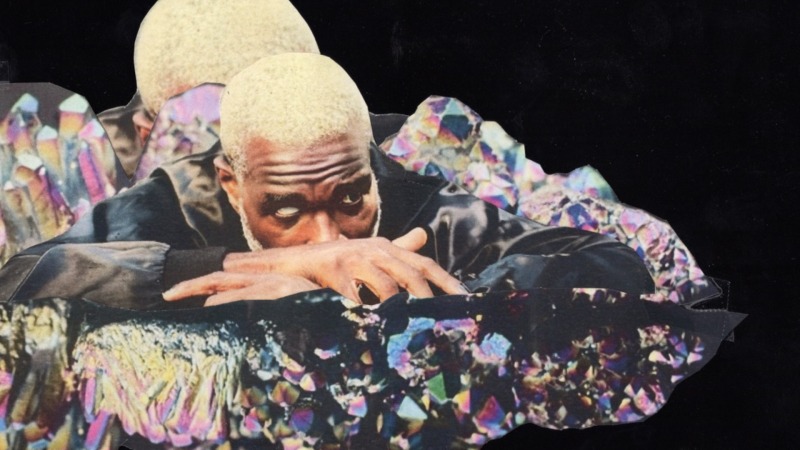Tunde Adebimpe Starts a Conversation on Thee Black Boltz
After two decades shaping the pulse of art-rock through TV On The Radio, Adebimpe remains defiantly human on his debut album, meditating in the chaos of creativity and untethered by genre—still evolving; still electric.

When TV on the Radio reunited to play their first shows in five years last fall, it wasn’t a wonted case of a band simply reuniting. It was more sincere, more consequential—a fated resurrection of one of New York’s most shape-shifting art-rock outfits of the aughts. The band is now stepping back into the limelight, touring and reviving the glow of their wholly merited legacy. However, as they reconnect with their roots, frontman Tunde Adebimpe has been branching outward at a rapid pace. In 2024 alone, he racked up acting credits in Star Wars: Skeleton Crew and Twisters, signed with Sub Pop, and announced his long-awaited solo debut Thee Black Boltz, which has finally arrived.
Now, I’m always hesitant when I hear that an artist is going solo. Rightfully so, too—going solo is a weighty gamble. At the very least, it tends to brew tension and rumors à la post-N.W.A. or Beatles breakup fallout. And, at its worst, the artist unknowingly slips into the dreaded “musician-turned-actor” purgatory. But Adebimpe, ever an alchemist of weird and brazenly cool creations, continues to sidestep these pitfalls without effort. For over two decades, TV On The Radio has shaped the pulse of indie-rock through their static-soaked soul, yet Adebimpe still moves like lightning from a grounded wire. He’s unafraid to take that creative leap of faith, remaining composed and confident in every step he takes, It’s cemented him as an unmistakable voice in the folds of music history.
On Thee Black Boltz, Tunde Adebimpe is a wholly unplaceable spirit. He’s thriving in collaboration, meditating in creative anima and untethered by expectation—still evolving; still electric. This is no side-bar creative pursuit, but an album scarred by personal loss, most tragically the sudden death of his younger sister. Furthermore, Adebimpe is wrestling with a world in complete political freefall, one still reeling from the pandemic, and yet he dares to search for life within that wreckage. Maybe it’s not purely joyful, but it’s working towards joy, finding a silver lining in each new idea and moment of fluorescent hecticness. And, God, if Thee Black Boltz is ever hectic.
-

-

-

-

-

-

-

-

-

-

-

-

-

-

-

-

-

-

-

-

-

-

-

-

-

-

-

-

-

-

-

-

-

-

-

-

-

-

-

-








































